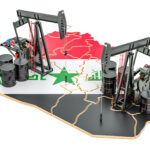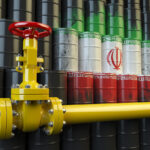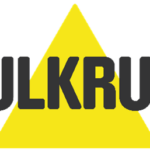From Financial Times
In many ways Iraq’s oil industry is a success story.
After decades of isolation, oil production has risen by more than 75 per cent since 2013 to almost 4.5m barrels a day and, despite conflicts with the Kurds and Isis, security has been maintained and exports steadily increased. There are plans for a further rise in output to more than 6m b/d.
The country is back as a fully participating member of Opec, the oil producers’ cartel, and has benefited from the recent surge in world prices.
But behind the superficial success lies a power grab that could undermine all the progress. A petroleum law was passed this year that will transform the largely successful relationship between the government and operating companies. This creates a single entity with sole responsibility for all aspects of the development of the oil and gas sector across Iraq.
The new company — the Iraq National Oil Company, a revived and expanded version of the old INOC that was absorbed by the oil ministry in the 1980s — will:
- control all hydrocarbon revenues, and itself determine what is passed to the national treasury;
- own all upstream, midstream, downstream, marketing and tanker interests and the associated pipeline and export infrastructure;
- be the only authority to sign contracts with international companies investing in oil and gas and other parts of the energy sector;
- have the power to create a fund to distribute the profits to every citizen;
- control a new next generations or sovereign wealth fund;
- invest in strategic projects in areas of the country in which it operates and in industrial and agriculture projects on any land it owns.
Within this remit there are few limits to the powers of those running the company. It is hard to imagine a structure more susceptible to corruption. Iraq is 169th out of 180 countries in Transparency International’s corruption index and could sink further in the ranking. The revenues from production, which account for 90 per cent of the country’s budget, could be diverted into private pockets just as the billions poured in by the US and others to stabilize the country after the fall of Saddam Hussein were a decade ago.
Given its resources and skills, Iraq should be one of the region’s richest countries. But 15 years after the US-led invasion there are still shortages of basic supplies such as electricity. There is no appetite for further external intervention to put things right; after the failures of the past three decades the mood concerning the Middle East is one of frustration and fatigue.
The IMF, which underpins the economy, can complain about the new petroleum law but it has little influence other than by withholding loans. Iraq must solve its problems itself. It is hard to be optimistic.
All the main political parties have supported the petroleum law, no doubt with an eye on the potential for jobs and spoils. Those who challenge the status quo are small and powerless. One hope, according to Iraqi friends, is that if Haider Al-Abadi wins a second term as prime minister he might impose better governance after parliamentary elections on May 12. This is based on his public stance on tackling corruption, increasing accountability and diversifying the economy away from dependence on oil. In principle that is possible. Power could be divided and accountabilities made transparent.
Ownership of resources and the operational side of their development could be made distinct. Functions such as marketing and infrastructure management could be separated out. Oil revenues could be directed straight to the treasury. An independent sovereign wealth fund could be established to invest some of those revenues for the future. Licences and contracts could be awarded to international investors through open competition. Of course, this would not solve every problem.
The conflict between Baghdad and the semi-autonomous Kurdish region in the north is unresolved. Isis has been expelled from Mosul and other parts of the country, but not eradicated.
An honest petroleum law would be a real symbol that the country could recover some of its strengths. Iraqis driven out over the past 40 years, first by Saddam Hussein and then by the chaos and violence that followed his fall, could begin to return.
A law that opens the door to further corruption, however, could undermine the limited gains of the past 15 years and drive away serious, long-term investors. The failure to agree terms for an important Exxon deal covering the West Qurna and other fields in the Integrated South Project, along with Shell’s decision to relinquish its interests in the Majnoon field, are straws in the wind. Iraq may be out of the headlines but it is not out of trouble.
Commentary by Nick Butler







